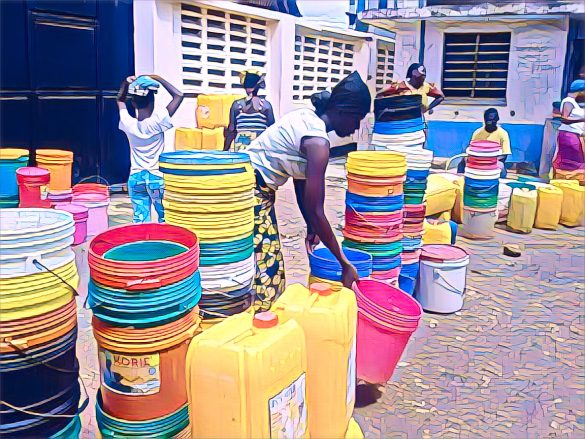Zimbabwe is facing an impending major water crisis in its urban areas, including growth points, due to the severe El Niño-induced drought currently affecting the sub-Saharan region. The Zimbabwe National Water Authority (ZINWA) has issued a warning about the acute water shortages anticipated as the drought’s effects continue to intensify.
The El Niño weather pattern, known for causing extreme weather conditions such as droughts in Southern Africa and floods and torrential rains in East Africa, has led to significant distress across the region. In response to the crisis, President Emmerson Mnangagwa has declared the drought a national disaster and stated that the government needs at least US$2 billion to provide for the food-insecure families affected by these harsh conditions.
According to a report by the United Nations Children’s Fund (UNICEF) earlier this year, approximately 860,757 Zimbabweans are currently without access to safe drinking water. Additionally, 17% of households are compelled to travel long distances to fetch water for their daily needs, exacerbating the hardships faced by many.
ZINWA spokesperson, Marjorie Munyonga, expressed concerns about the deteriorating water security situation across Zimbabwe’s cities, towns, growth points, and rural service centers. “The water security situation for cities, towns, growth points, and rural service centers across the country is on a deteriorating trajectory as the effects of the current El Niño-induced drought begin to be felt,” Munyonga stated.
As of May 2, 2024, the number of towns and centers with raw water sources holding less than 12 months of supply has increased from 12.8% to 14.9%. Munyonga noted that the areas categorized as having moderate water security—which means their raw water sources can last between 12 and 20.9 months at the current demand—stood at 38.3%. Conversely, 46.8% of locations are considered water-secure, having enough raw water sources to satisfy the 21-month rule.
However, several towns and centers face critical water shortages and will require urgent interventions. These areas include Bulawayo, Mvurwi, Mt Darwin, Figtree, Gwanda, and Chegutu, all of which have less than 12 months’ supply of water. Plans for these areas might involve drilling boreholes and identifying alternative water sources to address the shortages.
Other areas like Mutare, Kwekwe, Beitbridge, Karoi, and Chipinge fall into the moderate category, with their water supplies expected to last between 12 and 20.9 months under current conditions. In contrast, places such as Harare, Gweru, and Chinhoyi are listed among those that are water-secure, suggesting that their preparation and resources might be more robust.
ZINWA has committed to continuous monitoring of water demand and abstraction in all affected areas and will implement necessary interventions as required. Munyonga remains hopeful that the situation will improve with the onset of the next rainfall season by the end of the year. The “21-month rule,” as explained by Munyonga, mandates that after the close of the rainy season on March 31, there should be sufficient water to last 21 months at the current rate of demand, even if there are no further inflows.
This looming water crisis highlights the urgency for sustainable water management and infrastructure development in Zimbabwe. As the nation grapples with the implications of climate change and extreme weather events, the government, along with local and international partners, must prioritize investments in water conservation technologies, efficient usage policies, and community awareness programs to mitigate the impact of such crises on the population’s wellbeing and the country’s economy.
Source: Newsday


